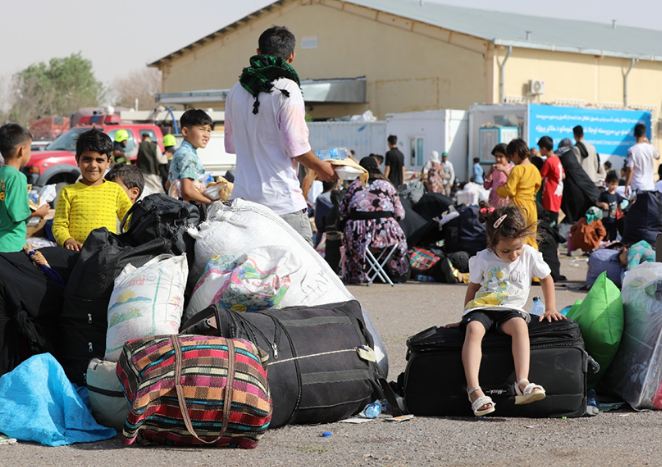Tehran, AUG 10: More than one million migrants have been returned from Iran to Afghanistan over the last 100 days, with approximately 450,000 coming from Tehran province alone, Tehran’s governor Mohammad Sadegh Motamedian announced on Saturday.
Motamedian explained that individuals without valid legal documents were identified and transferred to border crossings shared with Afghanistan to be sent back to their home country. “Managing foreign nationals has been a key priority for the government,” he said, highlighting that about half of all foreign nationals in Iran reside in Tehran province, which prompted a large-scale identification campaign.
The governor noted the impact on public services, citing that last year over 220,000 foreign national students utilized more than 6,000 classrooms across the province. “This year, with families registering their children in local schools, the existing educational capacity will be freed up for Iranian students without the need to build new schools,” Motamedian added.
The mass deportations have drawn international concern. In late July, Amnesty International urged Iran’s interior minister to urgently halt the forced expulsions of Afghans. The human rights group reported that over one million Afghans—including individuals born in Iran and long-term residents—have been forcibly returned in recent months. Amnesty linked the increase in deportations to escalating tensions between Israel and Iran, noting that more than half a million Afghans were expelled since June 1, including thousands of unaccompanied children.
The organization warned that millions more Afghans remain at risk of deportation, especially women and girls, whom Amnesty insists must be recognized as refugees and protected from return to Afghanistan, where the Taliban continue systemic gender persecution.
Iranian officials have previously justified the deportations as part of efforts to regulate residency and alleviate the strain on public services in areas with large foreign national populations.

















